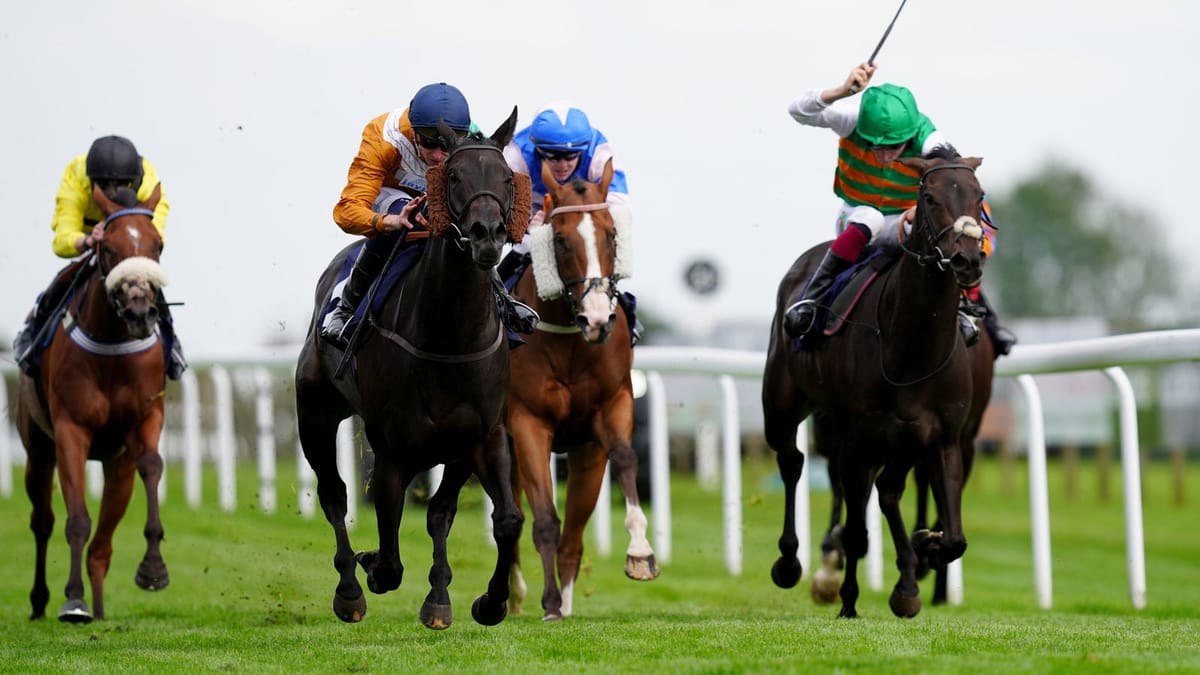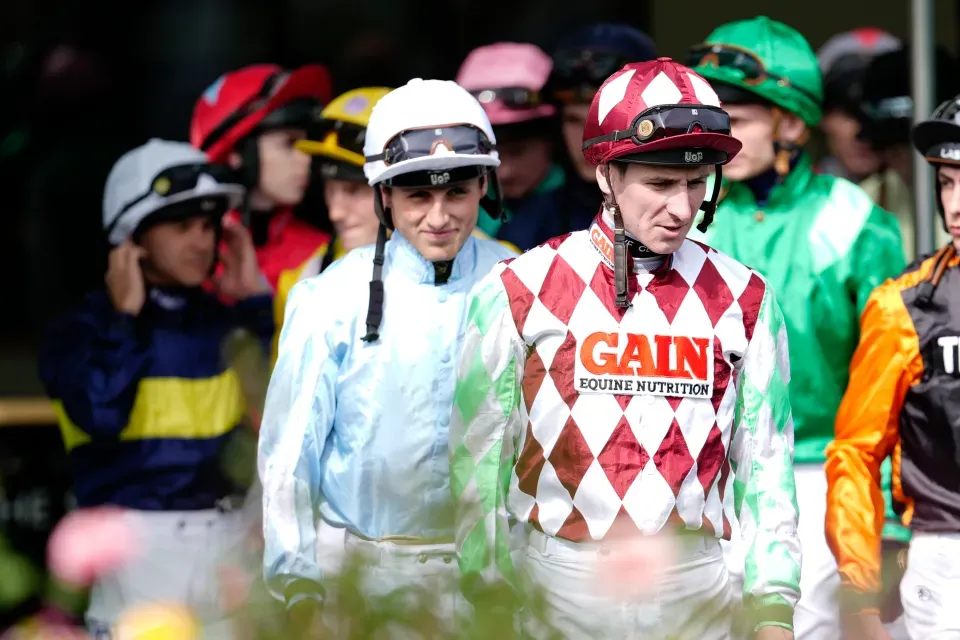The Nationwide Horse Racing Shutdown in Britain: What It Means for the Sport's Future
The unprecedented nationwide horse racing shutdown in Britain is a direct protest against a proposed tax hike.

Written by Lavanya, Intern, Allegedly The News
LONDON, September 11, 2025
The world of British horse racing, a cornerstone of the nation's culture and rural economy, has come to an unprecedented standstill. For the first time in modern history, every racecourse across the country has fallen silent. This is not due to a viral outbreak, extreme weather, or a national crisis, but a voluntary and collective action by the entire industry. The decision to halt all races on this day is a dramatic protest against a proposed government tax change that the British Horseracing Authority (BHA) and its allies believe poses an existential threat to the sport.
The Anatomy of a Protest: The Timeline and the "Axe the Racing Tax" Campaign
The roots of this unprecedented protest can be traced back to a government proposal to harmonize three separate online betting duties into a single Remote Betting and Gaming Duty. While this may sound like a minor bureaucratic change, the racing industry fears the new system would align the current 15% tax rate on horse racing wagers with the 21% tax rate levied on other forms of online gambling, such as casino games.
- August 17, 2025: The British Horseracing Authority announces the unprecedented decision to cancel all race meetings on September 10. The BHA, alongside key industry stakeholders, launches the "Axe the Racing Tax" campaign to lobby against the proposed tax hike. Four scheduled meetings at Lingfield Park, Carlisle, Uttoxeter, and Kempton Park are among the first to be affected, with a plan to reschedule. This initial announcement sends shockwaves through the industry, which has only ever been forced to stop racing by external forces like the Covid-19 pandemic.
- September 9, 2025: As the day of the shutdown approaches, the industry doubles down on its message. A racehorse trainer from Dorset, Harry Fry, tells Reuters that the changes would “put our livelihoods in jeopardy,” while Jim Mullen, Chief Executive of the Jockey Club, describes the proposal as "nothing short of an existential threat." The Betting and Gaming Council, representing bookmakers, expresses "disappointment" at the strike action, but racing officials remain resolute.
- September 10, 2025: The day of the shutdown arrives. While the racecourses are eerily quiet, the real action takes place in Westminster. Senior leaders, jockeys, trainers, and owners converge on Parliament to directly address lawmakers and make their case. The industry is making a visual statement—the absence of racing is meant to highlight its importance and the potential void a tax increase could create.
This collective and unified action is a strategic move to raise the stakes ahead of the British government’s Autumn Budget, where a final decision on the tax changes is expected on November 26.
The Economic Fallout: What's at Stake?
The British horseracing industry is not merely a sport; it is a major economic engine, particularly for rural communities. The BHA has commissioned independent economic analysis to quantify the potential damage of the tax hike, and the numbers are alarming.
- £4.1 Billion: The annual contribution of the horseracing industry to the UK economy.
- 85,000 jobs: The number of people directly and indirectly employed by the sport. This includes trainers, jockeys, stable staff, breeders, and the many local businesses that depend on racecourse visitors.
- £66 Million: The projected annual loss in industry income if the tax rate rises to 21%.
- 2,752: The number of jobs the BHA warns could be lost in the first year alone.
Jockey Tom Marquand used a powerful analogy to describe the situation: "It's almost like taking a Jenga block out of the pile and not expecting it to fall down. Inevitably, if you take out the base, the rest crumbles." The funding model of British racing is heavily reliant on a levy paid by bookmakers on their profits from betting. A tax increase on these profits would inevitably be passed on, leading to reduced investment in the sport. This would mean smaller prize money, fewer horses in training, and a diminished appeal for owners, which could trigger a downward spiral for the entire ecosystem.
The Government's Position: A "Level Playing Field"?
The UK government, through its exchequer secretary James Murray, has defended the proposed tax change as a way to “keep pace with the growth of online gambling” and to "level the playing field and simplify the system." The government's position is that the three-tax system is outdated and needs to adapt to the "dynamic and expanding nature" of the remote gambling sector. They also point out that the tax increase could generate an estimated £3 billion in revenue, a tempting figure as the government looks to raise funds without increasing the main rates of income tax or national insurance.
However, the BHA and its allies argue that horse racing is fundamentally different from online casino games. As trainer Marcus Tregoning told talkSPORT, "To align it with online casinos and online poker games that go through the middle of the night, racing's not like that." The industry emphasizes that it supports a vast network of rural businesses and jobs, and its funding model is unique. The government has acknowledged racing’s role in the “cultural fabric” of Britain, but has not yet signaled a willingness to exempt the sport from the new tax framework.

Case History: From Covid to Crisis
This is not the first time British horse racing has faced a shutdown. The most recent and impactful example was the COVID-19 pandemic, which forced a temporary halt to racing. However, the current situation is distinct. The COVID-19 shutdown was a reaction to an external health crisis, and the government provided support through programs like the sport survival package. This time, the shutdown is a deliberate, internal choice, a strategic act of defiance against a government policy that is perceived to be a threat from within. The industry has chosen to create a crisis of its own making to prevent a larger, more permanent one.
What Happens Next?
The immediate future of British horse racing hangs in the balance, with all eyes on the November budget. The industry has made its point in a dramatic fashion, but the effectiveness of this protest remains to be seen. Will the government be swayed by the unified front of the racing industry? Will the threat of job losses and the erosion of a national sport be enough to change their minds? Or will they stand firm, viewing the protest as a necessary, if costly, side effect of a broader fiscal policy?
Beyond the immediate tax debate, this event raises broader questions about the future of a traditional sport in a digital-first economy. Can horse racing successfully adapt its funding model to be less reliant on a single, vulnerable income stream? How can the industry effectively communicate its cultural and economic value to a government and a public that may not fully understand its unique ecosystem? The outcome of this standoff will not only determine the financial health of British racing for the next decade but also set a powerful precedent for how other heritage sports and industries respond to similar economic pressures.
The future of British horse racing, a sport that has long been a part of the national identity, is now at a crucial crossroads. Its survival may depend on its ability not only to stand together but to effectively articulate its value in an ever-changing world.
Discussion Questions
The protest highlights a deep-seated fear that the government does not fully appreciate the "cultural fabric" of the sport. How can racing better showcase its economic and social value to a wider audience and policymakers? From a public relations standpoint, was a nationwide shutdown the most effective way to communicate the industry's message, or does it risk alienating fans and the government?
Sources
Information gathered from official statements by the British Horseracing Authority and UK Treasury, reporting by Sky News and the Racing Post, and independent economic analysis.




